Tim Denshire-Key & Mohamed Nur
Jebena Jebena is a minimalist take on Eritrean joinery and patterns that unpin the Eritrean coffee tradition. Based on the personal
exploration of one of the designer’s family journeys, Jebena Jebena is an exploration of Eritrean coffee culture in a modern
context away from the origin.
The idea is to look at one of the core elements of Eritrean coffee culture, that of the small servicing table. Now as we sit in this modern
world, what could a re-imagining of this core element be? What if we looked at it from the experience of using it, how could we redesign it,
to simply show, but unshow its core features? Moe and Tim are designers who have collaborated on projects together sporadically since 2014.
IMAGE > Tim Denshire-Key and Mohamed Nur, <em>Jebena Jebena</em>, 2021, recycled timber, 32 x 40 x 45 cm
Not for sale
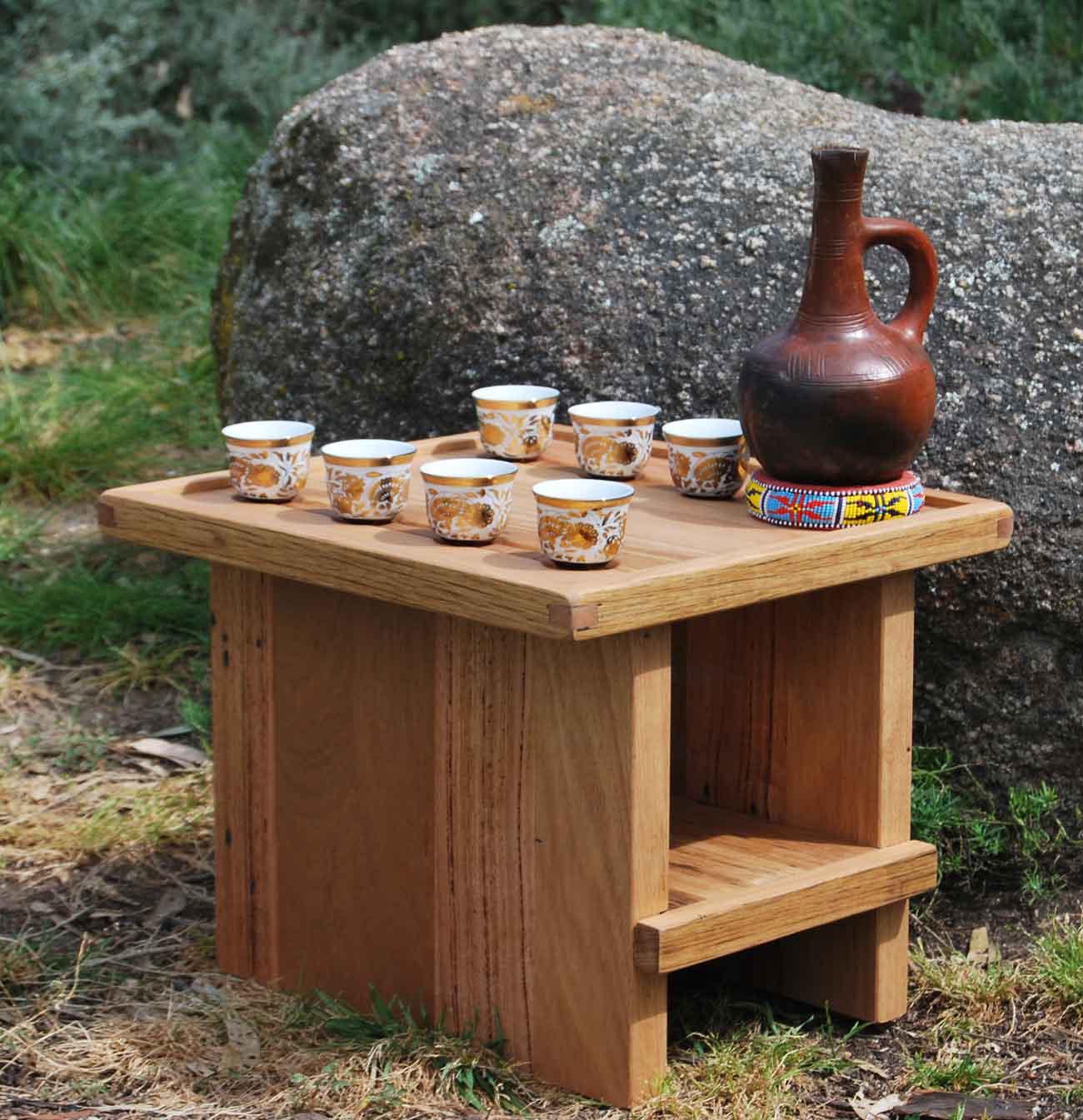
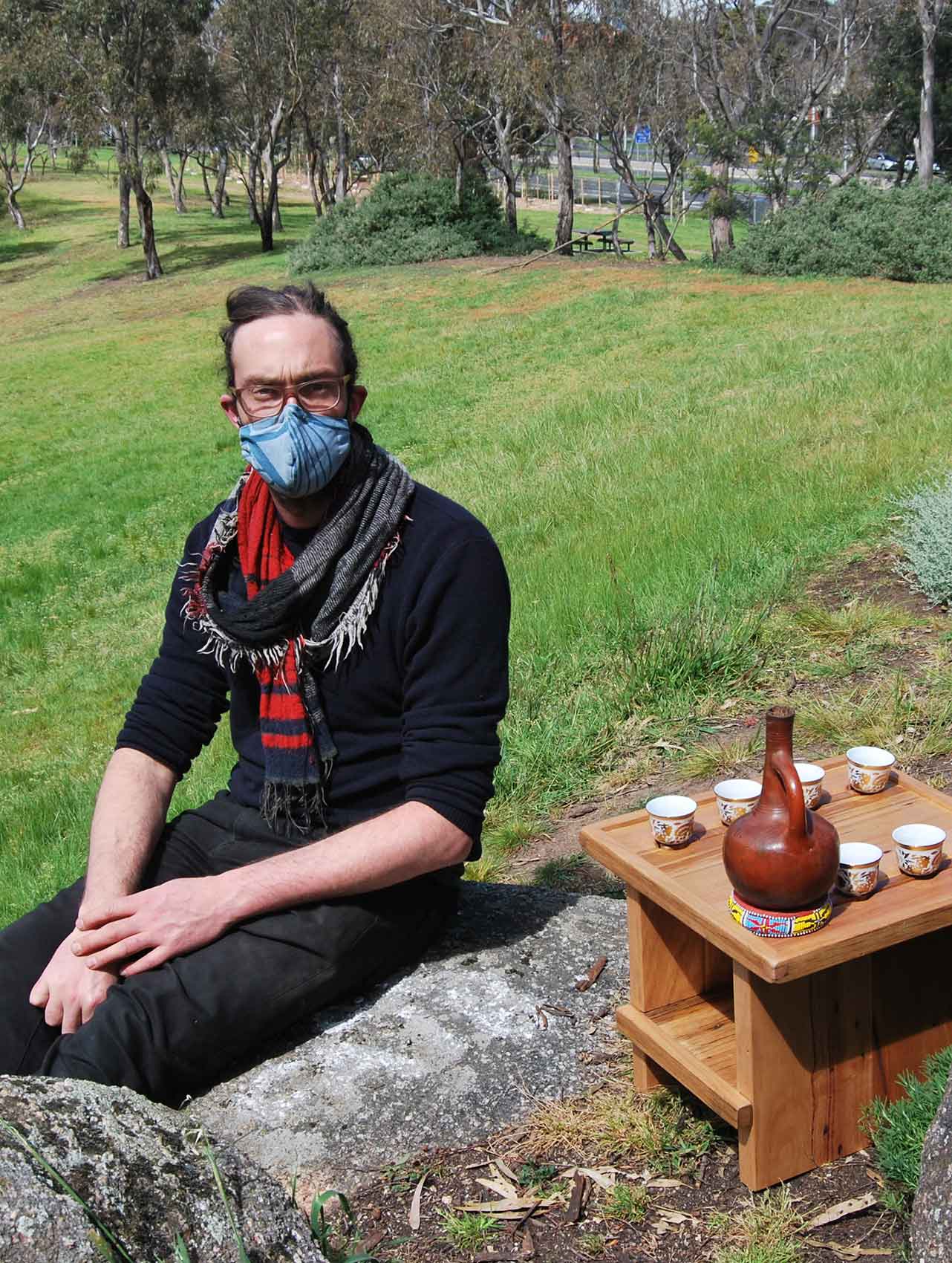
Mohamed Nur: The time at home and experiences of being locked down has made me reconnect with aspects of my Eritrean culture, and
question how the design I do aligns with it. This project was an experiment in trying to physically re-imagine my internal thoughts in
how design, functionality and culture intersect.
Tim Denshire-Key: It’s given me more time to think things over and be in the one place for an extended period of time. Pre pandemic I was travelling regularly for work so found it hard to find the space to get projects such as this one up and running.
Mohamed Nur:
The main change to my practice is the cooperation of what Tim (co-designer) and I have been calling ‘zoom designing’ where instead of
being able to meet up in person and try out different elements of our design, we instead have been sketching out independently validating
elements of our design with the resources we have available. For Tim, he has been able to work in timber and determine joinery, while I
have been using 3D printing at home to validate certain design features and build out the jigs we would use to finally build the table.
Tim Denshire-Key:
When Moe and I decided to enter Design Fringe we envisaged catching up at the workshop and working through prototypes and ideas.
Instead we’ve managed to re-work our process to do this remotely. I’ve enjoyed it in a sense to try and rework how we can make it work
within the constraints we’re living within.
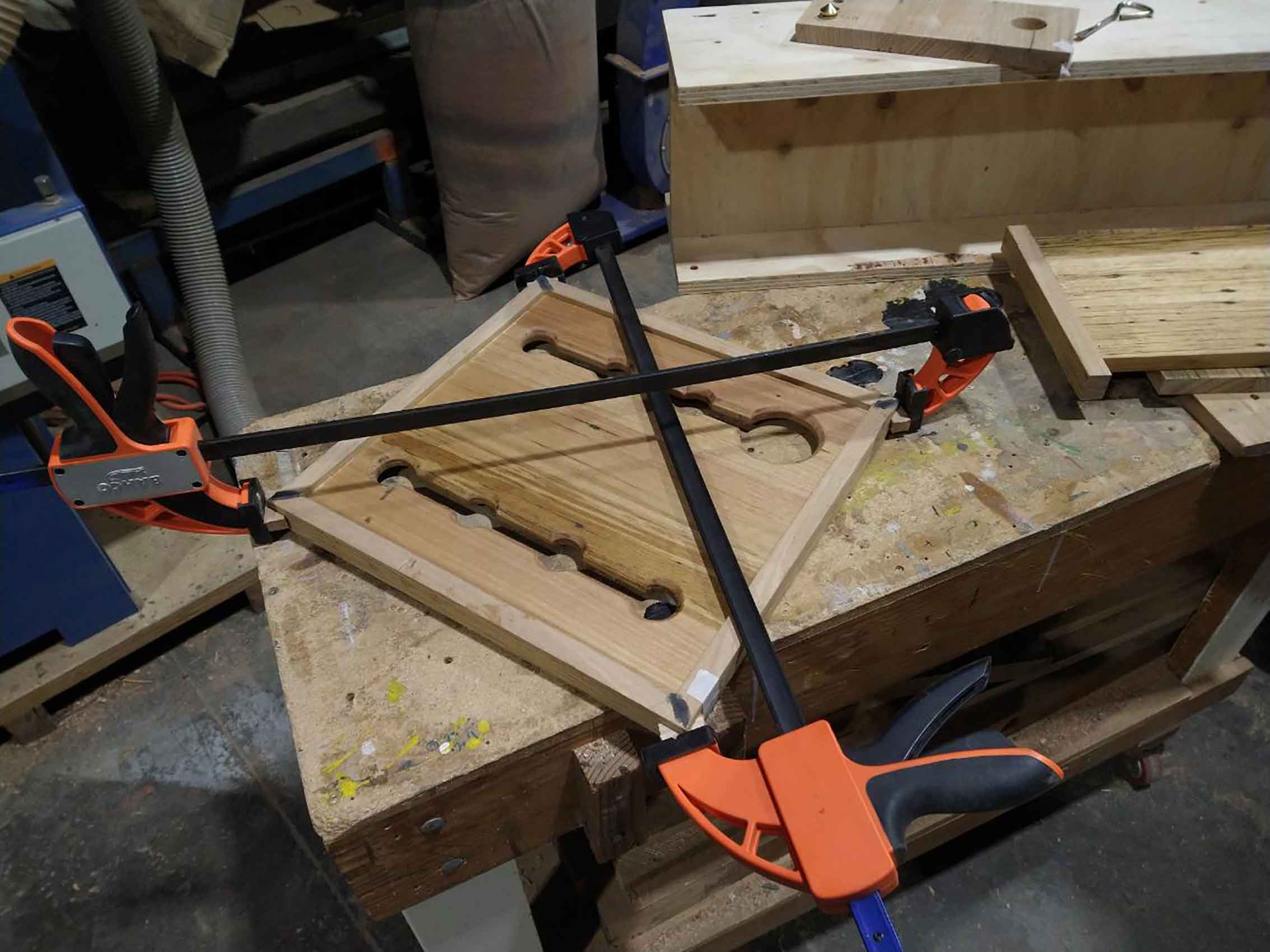
Mohamed Nur: I would say, I’ve taken a different approach to others in the sense that rather than looking outwards I've been
looking more inwards at things at home and trying to understand how they were made and their stories as to how they got here. So, if I
had to choose, one gem I would say would be the pile of waved plates that I found in storage. I don’t know what it is about them, but
the patterns are just oddly fascinating and the idea of taking a straight piece of material and making it a round plate with colour is
extremely interesting to me.
Tim Denshire-Key: There’s a moment on a bike path nearby my place that runs along the creek. As you come around the bend you’re met by this multilayering of over-scaled concrete paths and over passes, adorned with graffiti and bordered by bush. Especially when the sun hits it just right, it’s got this quality to it or beautiful ugliness that I enjoy passing by. There’s something about the mash of competing paths, materials and textures.
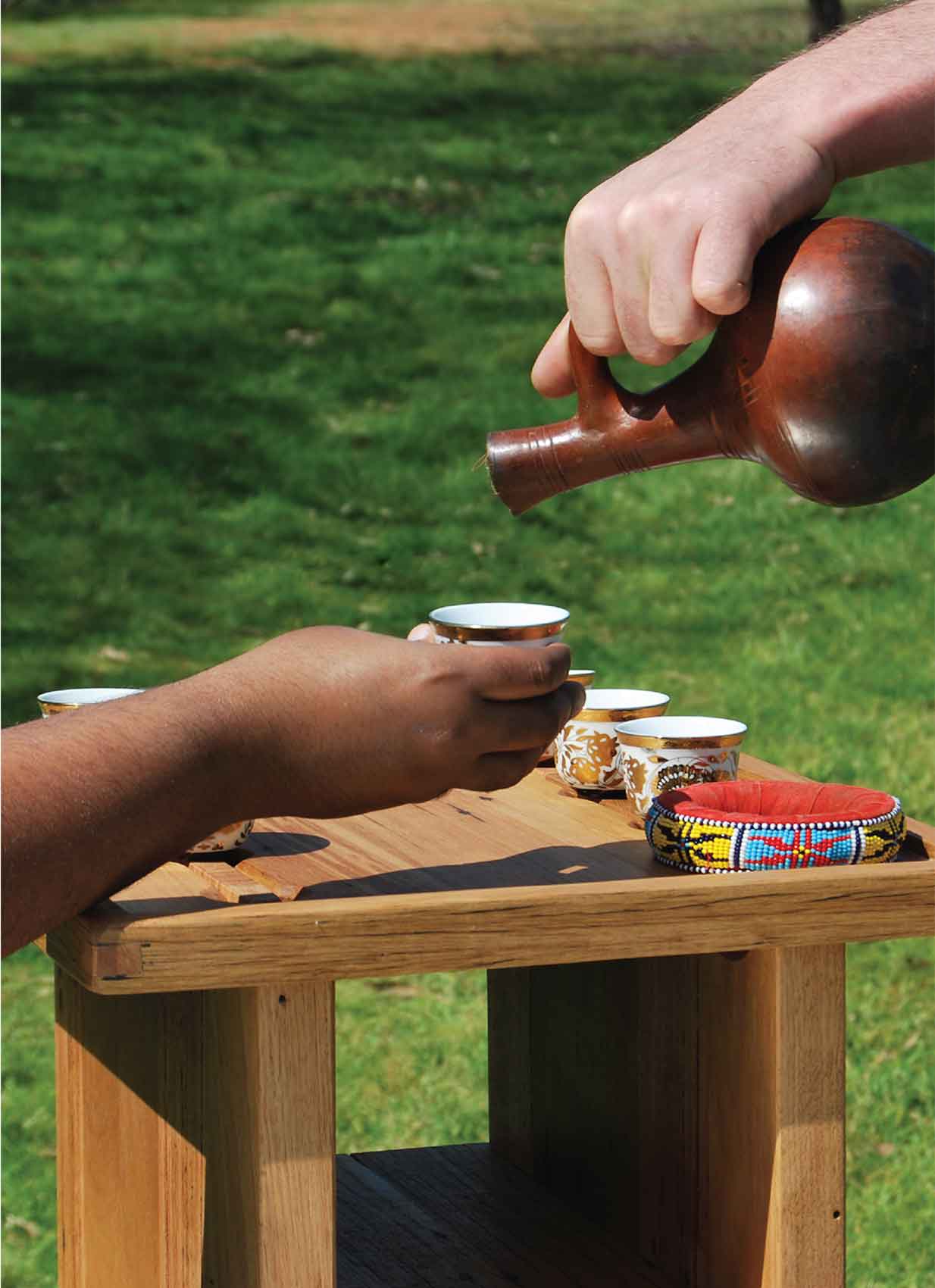
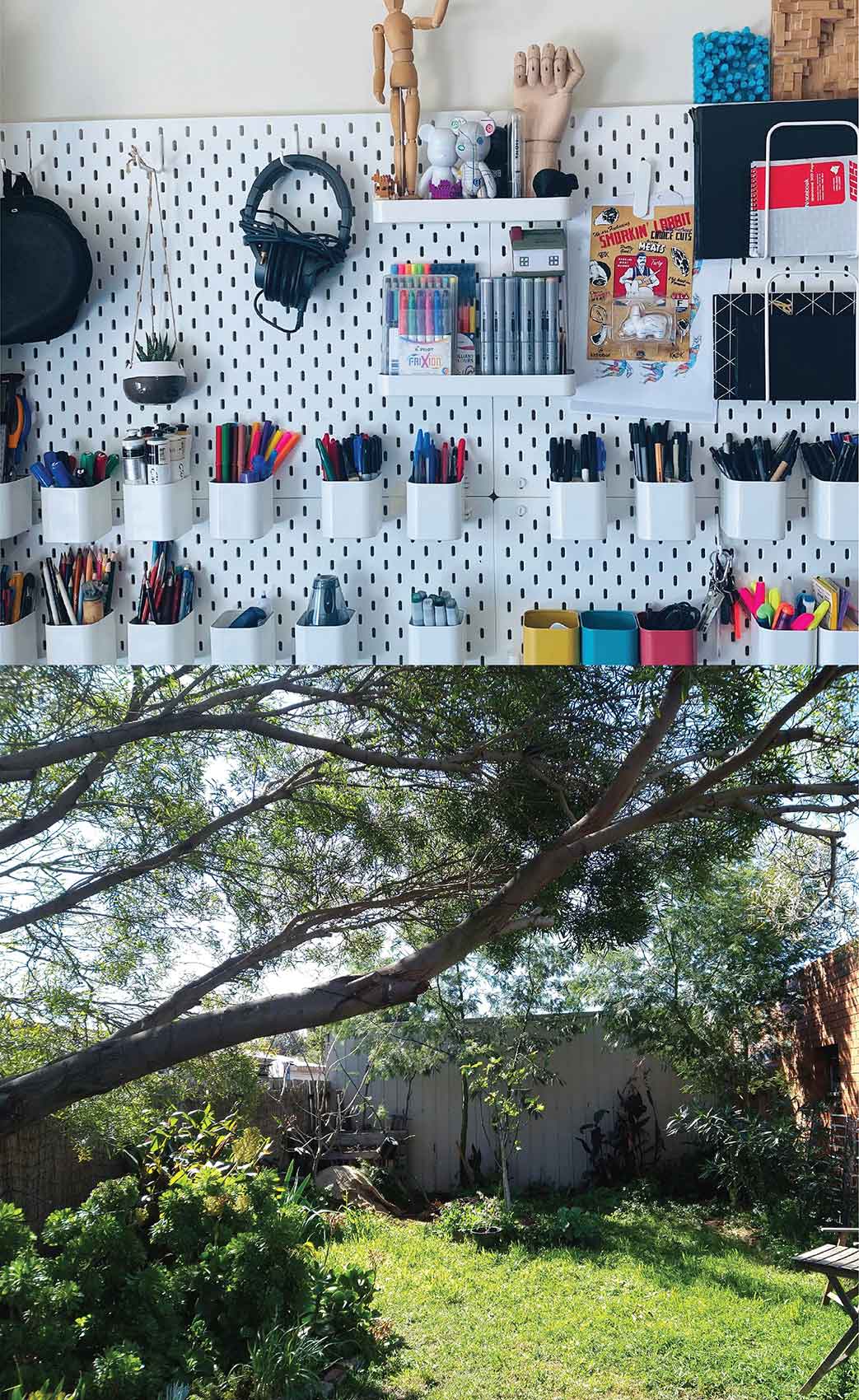
Mohamed Nur: My favourite room is actually part of a bedroom I have made into my makeshift office/studio. In this space, I have been
able to incorporate things I’ve made, things I’ve designed and my weird need to be able to see all the things I need at a glance. My pen
and project wall conveys my internal thinking, controlled chaos.
Tim Denshire-Key: For me it would be my garden. There’s an element of intentional design to it, but also it’s largely been left to its own devices. It’s been a space that I’ve made more time for and taken more notice of over the last two years. Slowly intervening in parts and then leaving it to develop of its own accord.

Mohamed Nur:
My favourite thing to make lately has been traditional Eritrean coffee. It's a long process that takes hours to prepare from raw
beans to finally drinkable coffee. But in the quiet evenings of lockdown, the ritual of timed and well worn practiced actions connects me
back to my grandmother that taught me over years to make it right and in the style of the Tigre people of Eritrea. In terms of
ingredients/recipe, its a family secret passed within families. But I had to say something about it, our coffee has between five to ten
ingredients each individually prepared and combined to make this one coffee drink.
Tim Denshire-Key: It’s hard to pin down just one. At the start of one of the previous lockdowns to this one, I bought a kilo of coriander seed and spread it all around the gardens and lawn. It’s now coming through strong so I’ve enjoyed working it into all my meals. Also spotting it pop up in all facets of the garden has been like little surprises each time. Being able to sit down for a meal out the back and pull out some garnish from the lawn has been quite a novelty.
IMAGES [Top to bottom] > All images courtesy of the artists. Recipe image source: unsplash.
+ Visit Tim Denshire-Key and Mohamed Nur's
Website